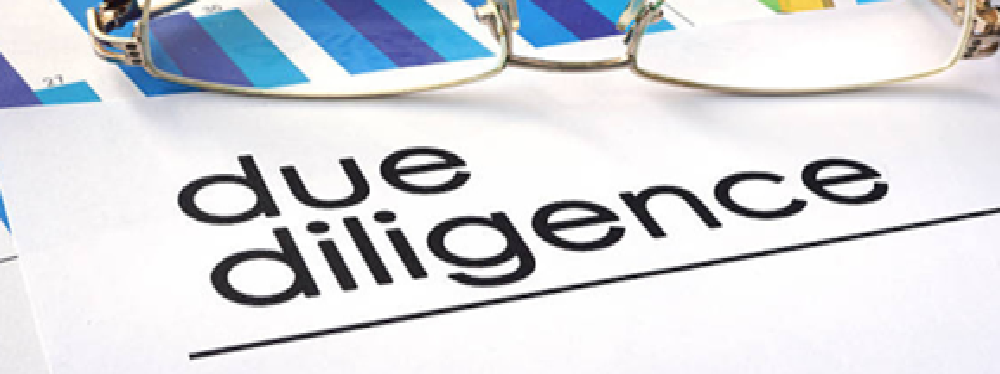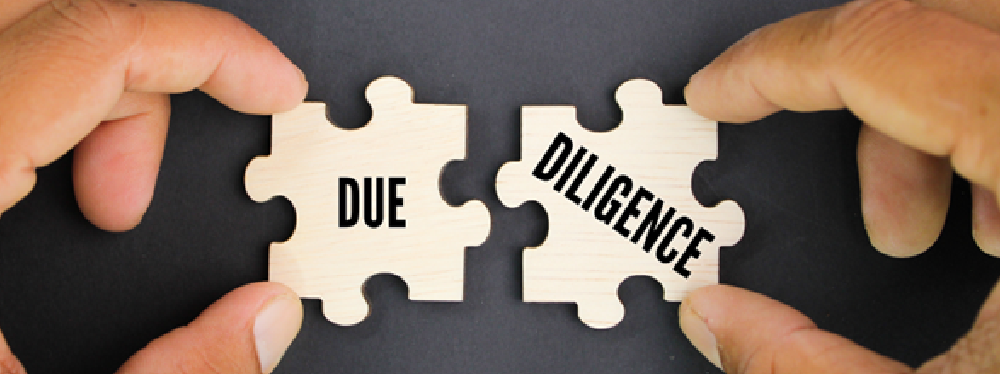Buying luxury properties is a significant and complex endeavour, especially in the present real estate market. With affluent buyers and Non-Resident Indians seeking prime investment opportunities, understanding the nuances of the buying process becomes crucial. One of the most critical aspects to consider in this regard is legal due diligence.
It involves a thorough investigation into a property’s legal status, ensuring buyers are protected against potential pitfalls like title disputes, regulatory compliance, hidden liabilities, etc. Following legal due diligence, buyers can make informed decisions, safeguarding their investments and improving their overall purchasing experience in the luxury real estate sector.
Here’s more on legal due diligence and its importance in the real estate sector!
Understanding Legal Due Diligence
Legal due diligence is an in-depth investigation of all legal aspects related to a property before its purchase. Its primary purpose is to ensure that the property is free from disputes, encumbrances, or any legal issues that could affect ownership rights. This process involves scrutinising various documents and records to verify the legitimacy of the property transaction.
Key Components for Luxury Property Transactions
- Verification of Property Title:
Verification of legitimate ownership requires verification of the title history through public records with no discrepancy. It helps in establishing clear rights to ownership.
- Review of Encumbrances:
Buyers should check whether the property has any mortgages or liens that can affect the value or transferability of the property. Understanding the encumbrances helps buyers judge the potential financial liabilities in regard to the property.
- Compliance With Regulations:
Strict adherence to local laws and zoning regulations is crucial in avoiding future complications or legal issues related to land use.
- Inspection of Property Documents:
Sale agreements, previous title deeds, tax receipts, and occupancy certificates are essential documents that give insight into the property’s legal standing.
- Assessment of Developer’s Credibility:
For new constructions or projects under development, evaluating the developer’s credibility is essential. Researching their credentials can uncover any history of questionable performance or delays that might impact your investment. These factors are key to ensuring a smooth transaction process and protecting the buyer’s investment from potential legal challenges.
The Importance of Legal Due Diligence for Luxury Property Buyers
Here are some of the reasons why legal due diligence is essential for buying luxury properties:
Protecting Investments and Avoiding Financial Pitfalls
Legal due diligence can help prevent major financial losses due to hidden liabilities or disputes that may arise after purchase. Identifying potential risks upfront helps buyers make informed decisions about whether to proceed with a transaction or negotiate better terms.
Ensuring Clear Title and Ownership Rights
A thorough title check ensures that the seller has the right to sell the property without any claims from third parties. This step provides peace of mind to buyers who want assurance that their investment will not be challenged in the future.
Identifying Potential Legal Risks and Liabilities
Identifying the risks at the initial stage allows buyers to make informed decisions or negotiate better terms as per their findings. For instance, if a property has unresolved zoning issues or pending litigation, buyers can weigh these factors against their investment strategy.
Enhancing Resale Value
Properties with clear titles and compliance with regulations generally have higher resale values. Conducting due diligence not only protects current investments but also enhances future profitability.
Read Also: The Hidden Costs of Purchasing a Luxury Apartment: What You Need to Know
Key Areas to Focus on During Legal Due Diligence
Buyers should focus on several key areas during the legal due diligence process, which include:
Verification of Property Title and Ownership Documents
You should check whether all documents are legitimate and up to date. For this, you can obtain copies from local land registries or government offices responsible for property records.
Review of Property Encumbrances and Liens
Obtain encumbrance certificates from relevant authorities to ensure that there are no outstanding debts associated with the property.
Assessment of Land Use Regulations and Zoning Laws
Consult with planning departments or municipal authorities to ensure compliance with local zoning requirements.
Analysis of Existing Leases or Tenant Agreements
Review the lease agreements carefully before purchasing a property to understand any obligations tied to tenants already residing in the property.
Due Diligence on Developers and Their Track Record
You can gain insights into the credibility of developers by researching their histories. Check online reviews, past project records, and any litigation history involved to know their reliability.
Common Legal Issues Faced by Luxury Property Buyers
Luxury property buyers often encounter various legal issues that can complicate transactions:
Title Disputes and Implications
Improper documentation of previous ownership transfers or unsettled claims from third parties regarding ownership rights can cause title disputes.
Regulatory Compliance Failures
Non-compliance with local laws can result in fines or even forced sales. Gaining a thorough understanding of these regulations in advance is crucial to avoid costly mistakes.
Tax and Assessment Challenges
Property buyers should have a detailed understanding of tax obligations related to property ownership. It helps them avoid unexpected costs associated with their investment.
International Regulations for NRIs
NRIs must navigate complex regulations that differ from domestic buyers. Adequate knowledge of these differences and international regulations will help prevent complications during transactions.
Read Also: Understanding DTAA and Its Impact on Your Income Tax
How to Conduct Legal Due Diligence?
Here are the steps to follow for a thorough legal check:
- Conduct a title search through local authorities or title companies.
- Review encumbrance certificates obtained from relevant government departments.
- Consult local zoning laws via municipal planning departments.
- Verify compliance with building permits by reviewing municipal records.
- Engage professionals such as surveyors to conduct boundary checks.
Importance of Hiring Real Estate Legal Professionals
Engaging an attorney specialising in real estate can provide invaluable expertise throughout the process. They can help identify potential pitfalls you might overlook as a buyer, unfamiliar with local laws.
Utilising Technology and Resources for Due Diligence
Online databases like government land registries or legal software tools can streamline your research efforts while reducing human error. Additionally, these tools provide easy access to historical property records and ownership details, saving time and ensuring accuracy.
Conclusion
Luxury property buyers looking for a secured investment and seamless transactions should opt for thorough legal, due diligence. By focusing on key areas, utilising appropriate tools and technology, and hiring professionals, you can make informed decisions for a successful future.
If you are still on a quest for your dream luxury apartment, Rustomjee can end your search with top-class properties. Contact us today and turn your dream into reality!
FAQs
- Can I conduct due diligence after purchasing a property?
Most of the due diligence should be conducted before negotiation and purchase of the property. However, some aspects like ensuring compliance and property management can be done after the purchase.
- Which online tools can I use for due diligence?
Yes, there are many online tools available for conducting due diligence. For instance, tools like Legalkart can help with legal and financial checks, Realtor.com for property records, and Statista for market analysis.
- What should I do if I discover a legal issue during due diligence?
If any legal issue arises, consult your attorney immediately. They will discuss the available options and resolution strategies, helping you navigate the situation and ensure a smooth transition post-discovery.







